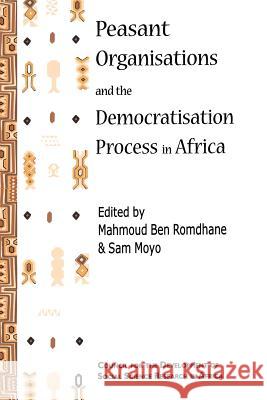Peasant Organisations and the Democratisation Process in Africa » książka
Peasant Organisations and the Democratisation Process in Africa
ISBN-13: 9782869781115 / Angielski / Miękka / 1982 / 376 str.
What are the issues shaping contemporary African peasant movements? Are they fundamentally democratic or anti-democratic? Are they defensive and local in their organization and aspirations or should they be seen as taking a leading role in a wider process of economic, social, and political transformation? Are they in the state's pocket or can they pose a threat to state power? And how do they fit in with other organs of African civil society, with overseas donor groups, and with imposed programs of structural adjustment? In this collection of important new research findings from all corners of Africa these questions and others are addressed while adding another dimension to the democratization debate: what of the real grassroots, the majority of Africa that is rural? Are modern rural peasant movements relevant to the debate at all or do they still only engage in what has been called "the politics of everyday politics," with the "weapons of the weak?"
What are the issues shaping contemporary African peasant movements? Are they fundamentally democratic or anti-democratic? Are they defensive and local in their organization and aspirations or should they be seen as taking a leading role in a wider process of economic, social, and political transformation? Are they in the states pocket or can they pose a threat to state power? And how do they fit in with other organs of African civil society, with overseas donor groups, and with imposed programs of structural adjustment? In this collection of important new research findings from all corners of Africa these questions and others are addressed while adding another dimension to the democratization debate: what of the real grassroots, the majority of Africa that is rural? Are modern rural peasant movements relevant to the debate at all or do they still only engage in what has been called "the politics of everyday politics," with the "weapons of the weak?"











